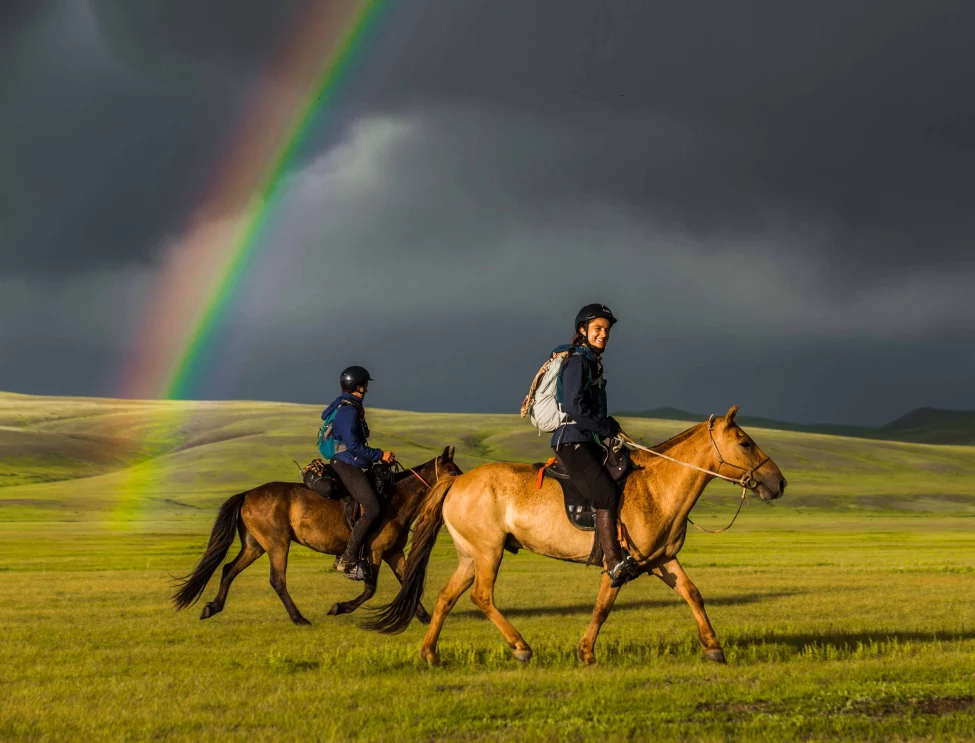Equestrian News Release
AUBURN, Ca. ? Faced with the high price of fuel, more endurance riders are participating in multi-day events as a way to get more miles for their money, the American Endurance Ride Conference (AERC), the governing body for endurance riding in the United States, reports.
?In today?s age of increased fuel and other costs, the multi-day ride is the best value going for endurance riders,? says past AERC President Randy Eiland. ?Instead of competing just one day, the multi-day ride allows the rider to participate in three or more endurance rides for the cost of only one trip.?
Participation in multi-day events has increased almost 13 percent per year from 1996 to 2005, according to AERC Vice President Michael Maul. ?The growth rate for multi-day rides is more than four times our annual membership growth of 3.1 percent,? says Maul.
In 2005, AERC recorded 4,341 entries in 34 different multi-day events representing 115 days of competition.
The multi-day event, or Pioneer Ride, is typically three to five days in length, and competitors ride 50 to 55 miles each day. The total minimum distance for a Pioneer Ride is 155 miles. While some opt to ride a different horse each day, many strive to complete the entire event?sometimes up to 250 miles total?on the same horse. Because of this, the atmosphere of the multi-day event is relaxed, and riders place more emphasis on finishing the day?s ride, rather than winning, thus providing testament to AERC?s motto, ?To Finish is to Win.?
Karen Chaton of Gardnerville, Nevada, says she enjoys multi-day rides because it gives her the chance to learn a lot about her horse and herself.
?I find multi-days to be the greatest challenge, and the most rewarding experience for me is to complete a five-day ride on the same horse,? says Chaton, who has twice won the XP Gold Medal Award for completing all five AERC-sanctioned XP multi-day rides (http://www.xprides.com) in one year?two three-day events and three five-day events totaling 1,060 miles?with her Arabian gelding, Granite Chief+/. ?The riders are more relaxed, and everybody tends to focus on experiencing the trail, their horse and their friends, which is more like family. It gets you away from the real world and puts you in an atmosphere that allows you to succeed or fail, while at the same time allowing you to learn so much,? says Chaton.
Eiland, who has been managing multi-day rides since 1988 and currently manages several three-day, 165-mile rides each year, says that his events in southern New Mexico attract riders from as far as Indiana and Canada. ?Pioneer Rides have proven both their worth and their ability to excite the membership,? he says.
The Pioneer Ride was born in 1982, when Tom Bowling was granted sanctioning by AERC for a four-day ride to help preserve historic trails. The following year, Dave Nicholson, D.V.M., who currently manages five multi-day rides each year, hosted the first of the five-day, point-to-point Pony Express Rides.
?Dave Nicholson?s ride captured the imagination of a few AERC members and proved to be a successful event,? says Eiland. ?From those early beginnings, more and more AERC members began to catch the multi-day ride excitement. The original Pioneer Rides were point-to-point rides over four or more days. In the mid-1990s, the AERC Board of Directors approved three-day events as Pioneer Rides to encourage more participation and opportunity for awards.
?This made the event available to a wider range of riders,? says Eiland. ?When multi-day rides began utilizing one base camp, the floodgate was opened. Today, the Pioneer Ride is one of the most popular and well-attended events that AERC sanctions.?
Says Chaton, ?I like how many of the multi-day rides are laid out, with one large loop out of camp. ?You get out there in some of the most beautiful country imaginable.?
Tuesday, April 18, 2006
Subscribe to:
Post Comments (Atom)
Meet the Amazonian racing 500km across Patagonia for women's health
AboutAmazon.eu - Full Article Written by About Amazon Team February 17 2026 Madeleine, Pan-EU Account Executive at Amazon in France, is ...

-
Inside.fei.org 17 December 2020 The FEI Board took a series of key decisions on allocation, cancellation, and reopening of bids for FEI C...
-
Michael Pollard was one of the four winners of the 2025 Mongol Derby (Kathy Gabriel) Ca.News.yahoo.com - Full Article Annabel Grossman ...
-
BNA.bh - Full Article 17 Aug 2025 London, Aug. 17 (BNA): His Highness Shaikh Nasser bin Hamad Al Khalifa, Representative of His Majes...


No comments:
Post a Comment